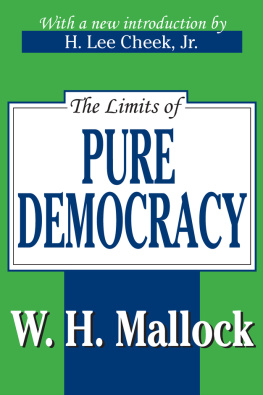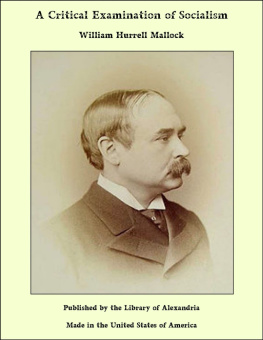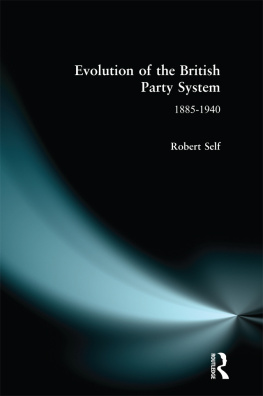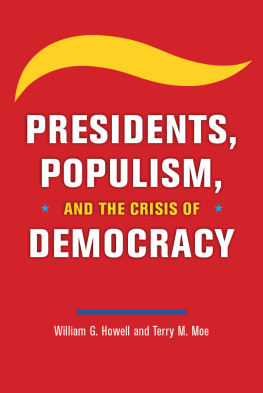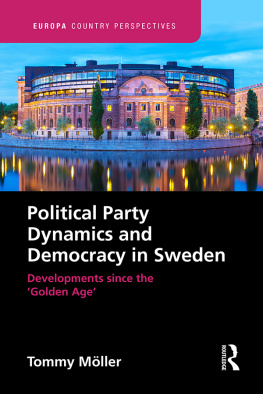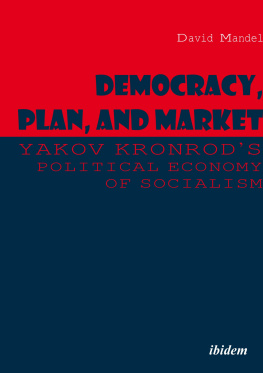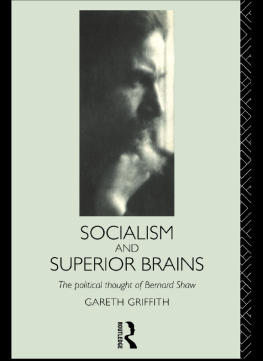Originally published in 1918 by Chapman and Hall, Ltd., London.
Published 2007 by Transaction Publishers
Published 2017 by Routledge
2 Park Square, Milton Park, Abingdon, Oxon OX14 4RN
711 Third Avenue, New York, NY 10017, USA
Routledge is an imprint of the Taylor & Francis Group, an informa business
New material this edition copyright 2007 by Taylor & Francis.
All rights reserved. No part of this book may be reprinted or reproduced or utilised in any form or by any electronic, mechanical. or other means, now known or hereafter invented, including photocopying and recording, or in any information storage or retrieval system, without permission in writing from the publishers.
Notice:
Product or corporate names may be trademarks or registered trademarks, and are used only for identification and explanation without intent to infringe.
Library of Congress Catalog Number: 2007024212
Library of Congress Cataloging-in-Publication Data
Mallock, W. H. (William Hurrell), 1849-1923.
The limits of pure democracy / W. H. Mallock.
Includes bibliographical references and index.
ISBN 978-0-7658-0846-2 (acid-free paper)
1. Democracy. 2. Economic history. 3. Socialism. I. Title.
JC423.M3 2007
321.8dc22
2007024212
ISBN 13: 978-0-7658-0846-2 (pbk)
To challenge the prevailing social and political orthodoxies of one's time and place often encourages recrimination and eventual neglect. Such has been the fate of William Hurrell Mallock (1849-1923), a seminal thinker of the late Victorian period and a figure who is deserving of greater scholarly attention. Mallock's increasing concern for the diminishing influence of personal restraint and ethical discrimination was at odds with Western society's ennobling of plebiscitary democracy and state control of the means of production. For Mallock, a steady concentration of political and economic power in national governments, increasing social and regional hostilities resulting from the quest for control, and the debasement of democratic rule, were ominous signs of the future that awaited the West.
Mallock: His Life and Times
Born into a privileged family at Cheriton Bishop in Devonshire, England, Mallock was the oldest child of the Reverend William and Margaret Mallock. Both sides of Mallock's family included personages of great influence and intellect, and most of his immediate family were members of the agrarian gentry who were Tories in politics and ultra-High Anglicans as churchmen. In his Memoirs of Life and Literature, written in 1920, Mallock gives the only account of his upbringing, contained within a larger study of the social and political world he had inherited. In almost every regard, Mallock accepted and affirmed the aristocratic view of social and political life, and this influence would permeate all of his writings.
Mallock's education began at home, under the private tutelage of the Reverend W. B. Philpot, a student of Matthew Arnold and a close friend of Tennyson. While under Philpot's pedagogical care, Mallock began to question his teacher's bent towards radicalism and innovation, themes the young student would continue to critique for the remainder of his life. In 1869, following in his father's footsteps, he entered Balliol College, Oxford, where he distinguished himself as a writer of some ability. From most accounts, he was not an accomplished student, preferring to write verse and occasionally meet with prominent literary figures, including Swinburne and Browning. Indeed, his writing was his salvation, and his diligent work bore fruit: in 1871, at Oxford, he won the Newdigate Prize for a poem he composed on the Isthmus of Suez.
During this period, Mallock began to create a series of outlines that would eventually become his most famous work, The New Republic, which, upon publication in 1877, brought great acclaim to the young writer.
Mallock continued to write for various publications, composing a wide variety of works, including poetry, novels, theological works, and political treatises. He was a prolific author who produced over forty books and as many articles during his long career. As a result of his commentaries and the ardent nature of his own beliefs, Mallock also had many detractors, including George Bernard Shaw, J. A. Hobson, and T. H. Huxley. As he advanced in years, the appeal of Roman Catholicism for Mallock became profound, but he never became a convert. He died on April 2,1923, in Wincanton, Somerset.
Mallock on Human Nature and the Modern Predicament
Over time, Mallock became apprehensive about what he perceived to be the decadence of modernity. The very nature of social and political life was being transformed by the perversion of democratic and socialist thought. Mallock feared the tradition that he had inherited was being replaced by a radically different view of human nature that included new, malleable institutional entailments as well. In describing the human predicament in this fashion, Mallock affirmed the Hebraic-Christian conception of human nature, viewing humanity as divided between the higher and lower ethical possibilities, and in need of personal and societal restraint as protection against the impulse of the moment. Mallock's theory of human nature also rejected social contractarian typologies devoted to promoting humankind's inert strength and virtue or ability to survive amidst isolation. Mallock contended that humankind's primary obligations lie in his community and an aristocratic ordering of society. Self-discipline and love of neighbor begin with the individual, and spread to the community, and then to society as a whole. In other words, human nature serves to define the limitations of society and politics for Mallock on one hand, while on the other it presupposes and defends the necessity of a properly constituted community for securing the moral and ethical results concomitant to society's perpetuation.
Mallock's view of society and politics affirmed humanity s situation between the earthly and the transcendent. The implicit role of the transcendent undergirds all of his writing, although his writings do not attempt to affirm a particular Christian worldview. If the fundamental religious tenets of Christianity were accepted, namely, immortality and the necessary vitality of belief, human freedom could be nourished and defended.
Continuing to approach the fundamental questions of the human condition, Mallock undertook a comprehensive and demanding process of examination. Against the prevailing attitudes of most defenders of tradition during this period, Mallock refused to rely upon tradition alone; the practicality of everyday life for Mallock often coincided with the need for contemplation and reflection. Mallock assumed an empirical approach to politics, amassing data of various types, and basing his critiques upon the evidence collected. Amidst a long life, Mallock acknowledged the need for a serious study of the great principles of politics and the moral
Mallock as Critic
The Limits of Pure Democracy is a defense of aristocratic political, social, and economic theory and practice. Mallock endorsed a properly constituted notion of popular rule, but the excesses of modern democratic thought were of great concern to him. The limitations of vague language pervaded most discussions about politics and economics, and Mallock feared such a lack of precision would undermine the political and economic order. Resulting from its simplicity and facility of construction, pure democracy possessed a troubling propensity for reporting cumulative electoral outcomes without regard for the natural divisions of authority.

